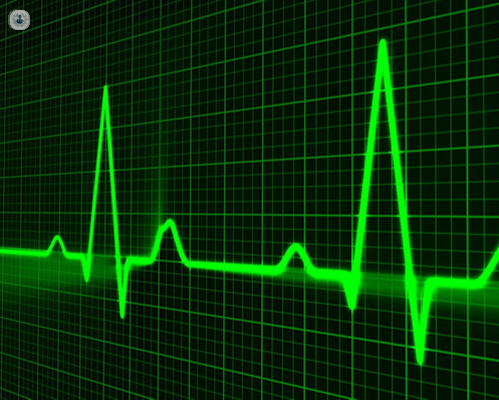An expert guide to palpitations: part 1
Autore:To many people, palpitations are a cause for concern, but do we really need to be concerned if we experience palpitations? Renowned consultant cardiologist Professor Peter Groves is here to help you clear up any concerns you may have.
What are palpitations, and what are some common causes of these sensations?
A palpitation is an awareness of the heartbeat. If we’re sitting down comfortably, we shouldn’t be feeling or be aware of our heart. If a person becomes aware of their heartbeat and in particular, if the heart is beating quickly, or in an irregular fashion, or forceful fashion, that would be categorised as palpitations.

The important thing to remember is that palpitations are a very important symptom. There are many symptoms that people with a normal heart experience from time to time, which don’t always imply underlying symptoms of heart disease.
It is important as a cardiologist to be able to help patients identify the times when a palpitation represents something of concern, as opposed to when palpitation is the kind of symptom that you or I may experience on a daily basis. For example, if we’re stressed, anxious or if we run up and down the stairs a few times. That differentiation is important.
What are some common causes of palpitations?
In some cases, patients can just develop an enhanced awareness of their heartbeat, which is one of the most common causes of palpitations.
In other words, the palpitation doesn’t have to imply that the heart is misbehaving itself or that the heart rhythm is changing. Sometimes people just become unusually aware of their heartbeat. That in itself can create concern and anxiety, which can make the symptom (s) more prominent.
One of the most common causes of heart rhythm disturbance palpitations is an ectopic heartbeat. The heart is a muscle which responds to electrical signals, transmitted through the heart in a regular fashion. If any of the heart chambers begin to beat spontaneously and fire off electrically, out of sequence with the heart, then the whole system is interrupted.
This is referred to as a premature ectopic beat and can come from any of the chambers of the heart, out of sequence from the rest of the heart. That is usually a benign cause of palpitations but can be associated with heart disease.
It is important to recognise that heart palpitations can sometimes represent changes in heart rhythm so that areas in the heart, such as the upper chamber, fire off very quickly which can make the heart race and consequently make the patient aware of a fast heartbeat, i.e. a palpitation.
How can people differentiate between benign palpitations and those that may be indicative of a more serious underlying heart condition?
Even for some experienced cardiologists, it can be very difficult to tell patients that they are definitely having a benign palpitation based on the symptoms they are experiencing.
However, there are certain red flag symptoms that patients should look out for, that make it more likely that a palpitation may be more serious. Those symptoms may include, for example, feelings of dizziness or light-headedness associated with the symptoms of palpitations and
episodes of loss of consciousness or blackouts (syncope). Blackouts are certainly a red flag symptom that should alert patients to the possibility of a significant underlying heart problem as a cause for palpitation, when it is linked to a history of palpitations.
Additionally, if palpitations precipitate symptoms of acute breathlessness or acute chest pain, this can sometimes indicate underlying heart disease.
If a patient doesn’t have any of those associated underlying symptoms, it is less likely that they have something serious, but it doesn’t necessarily mean that the palpitation itself isn’t clinically significant.
It is important to note that it certainly doesn’t mean that the patient shouldn’t come and see a specialist cardiologist. Even if palpitations aren’t associated with any of the red flag symptoms, it’s often best to understand and be reassured by tests and investigations, but a palpitation is usually nothing to worry about.
If you would like to speak to Professor Groves, you can book an appointment through his Top Doctors profile today.


